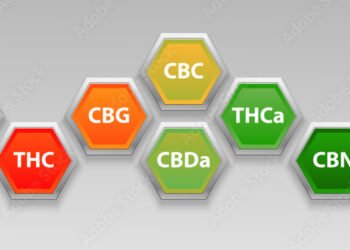As cannabis legalization continues to spread across various regions, parents are faced with new challenges and questions about its use and impact on family life. Understanding how to navigate this evolving landscape is crucial for ensuring the well-being of both parents and children. This guide aims to provide an informative and balanced perspective on cannabis and parenting.
Understanding Cannabis
Cannabis, also known as marijuana, is a plant that contains compounds called cannabinoids, the most well-known being THC (tetrahydrocannabinol) and CBD (cannabidiol). THC is responsible for the psychoactive effects, or the “high,” while CBD is non-psychoactive and often used for medicinal purposes.
Legalization and Access
With the growing trend of legalization, cannabis is becoming more accessible. This means that parents need to be informed not only about the legal implications but also about safe storage and responsible use to prevent accidental ingestion by children.

Cannabis Use: Benefits and Risks
Potential Benefits
Medical Relief: Many parents use cannabis for medical reasons, such as chronic pain, anxiety, or other health conditions. When used responsibly and under medical supervision, cannabis can offer significant relief.
Mental Health: For some, cannabis can help manage stress and anxiety, potentially making them more patient and present parents.
Potential Risks
Impaired Judgment: Cannabis can impair judgment and reaction time. Parents should avoid using cannabis in situations where they need to be fully alert and responsible, such as driving or supervising young children.
Child Safety: The presence of cannabis in the home poses a risk of accidental ingestion by children. Parents must ensure cannabis products are stored securely, out of reach and in child-proof containers.
Modeling Behavior: Children learn by observing their parents. Openly using cannabis in front of children might normalize its use, influencing their attitudes and future behaviors towards the substance.
Communicating with Children About Cannabis
Honest and age-appropriate communication is essential when discussing cannabis with children. Here are some tips:
Start Early: Begin conversations about substances, including cannabis, early. Tailor the discussion to their age and understanding.
Be Honest: Use factual information. Explain that while cannabis can have medicinal benefits, it can also be harmful, especially for young, developing brains.
Set Clear Boundaries: Just as with alcohol or other adult behaviors, set clear boundaries about cannabis use. Explain that it is not safe or legal for children and teens.
Encourage Questions: Create an environment where children feel comfortable asking questions. Answer them honestly and provide guidance.
Responsible Use and Safety Measures
For parents who choose to use cannabis, here are some best practices to ensure it does not negatively impact their parenting:
Use Discreetly: Avoid using cannabis in front of children. Consider using it when they are asleep or away from home.
Secure Storage: Keep cannabis products locked away and out of sight. Use child-proof packaging to prevent accidental ingestion.
Educate Yourself: Stay informed about the effects of cannabis, including how long it takes to wear off and how it might interact with other substances or medications.
Know the Law: Be aware of the legal status of cannabis in your area, including regulations regarding possession, use, and transportation.
Plan Ahead: If you plan to use cannabis, ensure another responsible adult is present to supervise children. Never drive under the influence of cannabis.
Balancing Parenting and Personal Use
Finding a balance between personal cannabis use and parenting responsibilities requires careful consideration and planning. Here are some strategies:
Assess Your Needs: Reflect on why you are using cannabis. If it’s for medical reasons, discuss with your healthcare provider to find the best approach that minimizes impact on your parenting.
Limit Use: Use cannabis in moderation to avoid significant impairment that could interfere with your ability to care for your children.
Create a Support Network: Have a network of friends or family who can support you if needed, especially in situations where you might be impaired.
Mindful Consumption: Be mindful of your consumption habits. Recognize when it might be affecting your mood, behavior, or daily responsibilities.
Seeking Help
If you find that cannabis use is interfering with your parenting or daily life, consider seeking help. There are many resources available, from counseling to support groups, that can provide assistance and guidance.
Conclusion
As the landscape of cannabis use continues to change, so too must our approaches to parenting. By staying informed, communicating openly with our children, and using cannabis responsibly, parents can navigate this new terrain while maintaining a safe and nurturing environment for their families. The key is balance, awareness, and a commitment to the well-being of both the parents and their children.
Read More: HHC vs THC: Understanding the Differences and Benefits
Buy Your OIL CBD: INSANA FLOR








